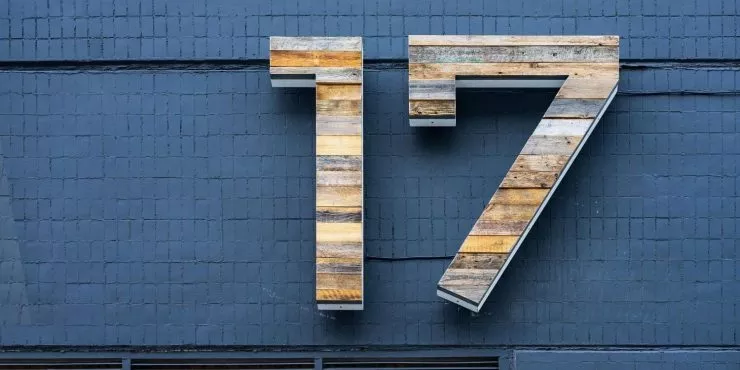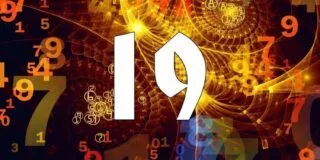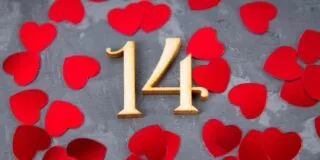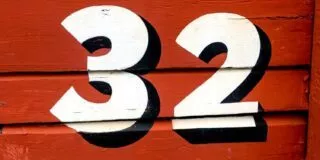Over the ages, people have attributed many facts to numbers.
Numerology, superstition, important dates, and so many other things cling to various numbers, which in some cases gives them great significance!
Today let’s take a look at 17 interesting facts about the number 17.
According to research done by MIT, the number 17 is the most common randomly chosen number between 1 and 20. This isn’t a completely random occurrence, either, as MIT has tested this theory a number of times with the same result each time!
17 is the seventh prime number. A prime number is a number that can only be divided by both itself and the number 1.
The number 17 is more than just a prime number, though – If you add the first four prime numbers together, their sum is 17. It’s also the only prime number that is made up of four other consecutive prime numbers, these numbers being 2, 3, 5, and 7.
In the French, Catalan and Italian languages, 17 is the first compound number. A compound number is a number made up of two different sets of numbers, in this case, dix-sept, disset, and diciassette, all meaning 10+7, respectively.
In the UK, when you turn 17, you’re granted a whole new level of freedom, as it’s at this age that you can start taking driving lessons, as well as being able to drive both a van and a car.
There are many new-found freedoms for those who turn 17 in the US, too. Once you reach this age, you’re allowed to apply for a private pilot license, rent R-rated movies, enlist in the armed forces (only with your parent’s consent), as well as being able to rent or buy any M-rated video games!
The number 17 is an incredibly common song title. Some of the most well-known artists with a song titled either “17” or “Seventeen” or including the number in some way include Prince, Kings of Leon, The Smashing Pumpkins, Jimmy Eat World, Stevie Nicks, and the Sex Pistols.
The Beatles’ hit song “I Saw Her Standing There” was originally going to be called “Seventeen.”
There’s a character in the hit Japanese manga and anime series Dragonball Z called Android 17, a cyborg who plays the role of villain at the end of Season 3 of the TV show.
The periodic table of elements is arranged into different groups, and group 17 is made up of halogens, which include five elements that are chemically similar. Chlorine, one of the halogens, has atomic number 17.
Followers of Islam must perform 17 raka’ahs, or a set of prayers and movements, in each of their 5 daily times of prayer.
Most people in the world would consider the number 13 to be the most unlucky number, but this isn’t the case everywhere. In Italy, the number 17 is instead considered unlucky, and it goes back to the age of the Romans. In Roman numerals, 17 is XVII, which, when rearranged, becomes VIXI. In Latin, VIXI means “I have lived,” which essentially means “I am dead.” Alitalia, an Italian airline doesn’t have a row 17 for this very reason, and some hotels do not have a room 17.
The youngest person to have ever played in a Football (Soccer) World Cup final was the Brazilian superstar Edson Arantes do Nascimento, otherwise known as Pelé, who was 17 at the time.
The youngest recipient of the highly sought-after Nobel prize was Malala Yousafzai, who was just 17 at the time. She was awarded the Nobel Peace Prize in 2014 for her struggles in advocating the rights of young women and children to have fair access to education.
According to ancient Egyptian legends, the death of Osiris, the god of death and resurrection, happened on the 17th of a month. As with most legends that predate decent calendar systems, it gets a little vague after this point – although it apparently happened on a day on which it was clear to see that the full moon was over.
It’s been proven that for a solvable game of the popular number puzzle Sudoku to be completed, it must have at least 17 different clues.
One of the most commonly known forms of Japanese poetry is Haiku, which imposes a strict rule on the number of lines and syllables allowed. The first line must have five syllables, the second must have seven, and the last line must have five. The total number of syllables in a Haiku is 17.
The number 17 is a bit of a bizarre one.
In terms of age, it’s the last age before you’re considered an adult in many countries, and this is a little disappointing when compared to 16 or 18.
Once you start to look into the number, though, you find it starts to pop up everywhere!












